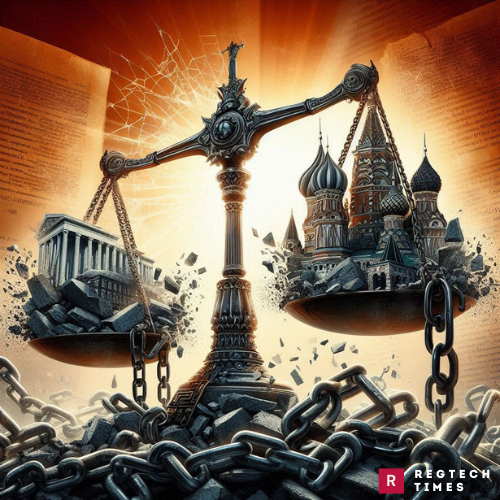Sanctions have been a go-to strategy for governments seeking to apply pressure on nations that violate international norms, and the imposition of Russian sanctions following its invasion of Ukraine in 2022 is a prime example. These measures aimed to weaken Russia’s economy, isolate its leaders, and diminish its capacity to wage war. However, the shadow side of these Russia sanctions is becoming increasingly apparent, revealing unintended consequences and significant legal challenges that question their effectiveness and long-term impact.
Limited Impact on Russia’s War Machine
Despite the extensive Russia sanctions, the country’s military capabilities remain largely intact. While these sanctions were intended to cut off the financial support necessary for President Vladimir Putin’s war efforts, Russia’s economy has shown resilience. Russian businesses and oligarchs have adapted by repatriating assets and aligning more closely with the Kremlin. Rather than destabilizing Putin’s regime, the sanctions have, in some cases, reinforced it. Wealthy Russians, seeing no viable alternative, are now more dependent on the state than ever before.
Moreover, the financial benefit to Ukraine from these Russia sanctions has been minimal. Despite the freezing of over $58 billion in Russian private assets, Ukraine has received only a fraction of this amount—$5.4 million—to support its war efforts. This disparity highlights the inefficiency of the sanctions and raises questions about their true objectives.
Erosion of Legal Principles Under Russia Sanctions
One of the most troubling aspects of the Russia sanctions is their impact on the rule of law, a fundamental principle in Western democracies. Many Russian businesspeople have been sanctioned without clear evidence of wrongdoing. In some cases, sanctions have been based on unreliable sources, such as social media posts or unverified media reports. For instance, Alisher Usmanov, a prominent Russian oligarch, was sanctioned partly due to a tweet and an article that were later retracted or legally challenged. Yet, the sanctions against him remain, raising concerns about the arbitrary nature of these Russia sanctions.
This erosion of legal standards extends to the principle of non-retroactivity, which holds that individuals should not be punished for actions that were not illegal at the time they were committed. Many Russian oligarchs have been sanctioned for attending meetings with President Putin before the invasion—meetings that were not considered illicit at the time. This retroactive punishment undermines the consistency and fairness of the Russia sanctions, leading to questions about their legitimacy.
Russia Reeling from Expanded U.S. Sanctions: Chinese, Turkish Companies Targeted
Inconsistent Application of Russian Sanctions
The inconsistent application of Russian sanctions further complicates the issue. While some individuals, like Usmanov, have faced severe penalties, others with similar or even closer ties to the Kremlin have escaped punishment. For example, Grigory Berezkin, another Russian media mogul, was removed from the sanctions list without clear justification, sparking speculation about the political motivations behind the decision. This selective enforcement not only undermines the credibility of the Russia sanctions but also suggests that political expediency, rather than legal principles, is driving these actions.
Sanctions on Relatives of Russian Businesspeople
Another troubling aspect of the Russia sanctions regime is the extension of penalties to the relatives of Russian businesspeople. In several cases, individuals have been sanctioned solely because of their family connections, without any evidence of direct involvement in illicit activities. This practice of guilt by association violates basic legal norms and sets a dangerous precedent. Such actions blur the line between legal enforcement and political retribution, raising ethical concerns about the fairness of targeting individuals based on their relatives’ actions.
Undermining the Rule of Law
The broader implications of these developments are alarming. The rule of law, which is foundational to Western democracies, is being undermined by a Russia sanctions regime that increasingly appears arbitrary and politically motivated. When legal principles are compromised in favor of expediency, the legitimacy of the entire system is called into question. This erosion of legal norms could have lasting consequences, not only for the West’s relations with Russia but also for the integrity of its own legal and political systems.
Russia’s sanctions are a powerful tool for responding to international crises, but their implementation must be carefully managed to avoid unintended consequences. The shadow side of these sanctions has exposed significant flaws in their design and application, raising serious concerns about their impact on the rule of law and the fairness of the global legal order. As the West continues to confront Russia’s aggression, it must also confront the growing challenges within its own approach to Russia’s sanctions, ensuring that justice and legality are not sacrificed in the pursuit of political goals.



